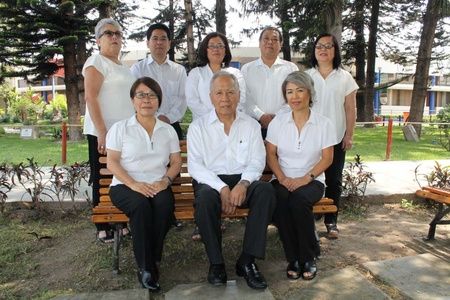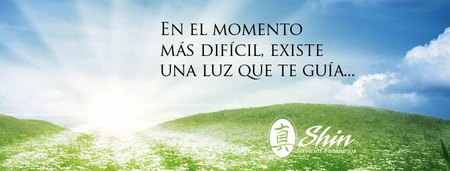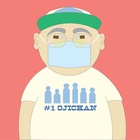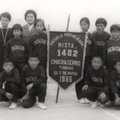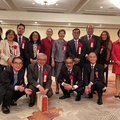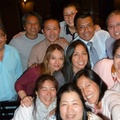In addition to the pain of losing a loved one, there is also confusion if the death was unexpected and you are not prepared to deal with the situation. What procedures must be followed, who to notify first?
The disorientation is accentuated in this situation marked by the coronavirus, plagued by restrictions, new protocols and comings and goings of the authorities, who first establish that the cremation of bodies is mandatory and then go back, or who prohibit wakes, authorize them with capacity reduced later, they veto them again later, and so on, depending on the progress of the virus.
And even if you are prepared, if you know what steps to take when a family member dies, facing the bureaucracy, the inevitable paperwork—while trying to get over the amputation—is a heavy burden.
In such a difficult time, you need guidance, advice, support, trust (especially in a country like Peru, where distrust is almost like breathing), a person who will take care of practical matters. Someone like Ketty Tsuchiya, advisor at Shin Funeral Services.
FROM ENVELOPE TO BANK TRANSFER
Ketty Tsuchiya is widely known in the Nikkei community. His name comes up immediately when someone has lost a relative. He is the person who calls for support and since the virus began to hit Peru in March of last year, his phone number is ringing more than ever.
In normal times, Ketty would go to the home of the deceased's family (or the hospital or clinic where he died), supervise the wake, set up the table with the basic elements - ihai, ocha, gohan, mochi, etc. -, placing the box where the assistants deposited the koden, checking the coffin, going to the cemetery if appropriate.
All that ended with the pandemic. Now he works remotely. There are almost no wakes and cremations are common, not the exception as in the past.
A deeply rooted custom within the Peruvian-Japanese community when a person dies is the delivery to the bereaved - by relatives of the deceased and his family - of an envelope with money as help. The pandemic also disrupted this form of Nikkei reciprocity.
Ketty remembers that during the first months of the strict quarantine in Peru, when almost everything was prohibited, in Shin they wondered what to do with the koden, how to make it viable in the new reality that restricted physical interaction and confined people in the virtuality.
The possibility was considered that the money contributed would be channeled through a Shin account, which would send it to the family of the deceased. However, the idea was discarded considering that the handling of other people's money is something delicate that could lead to misunderstandings.
The best thing, says Ketty, is for the koden to reach the mourners directly.
The pre-pandemic envelope money has been replaced by deposits in the family's bank account.
This being the case, how to disseminate the account numbers of the bereaved so that those interested in donating know where? Throught social media? No, that was ruled out due to the risk of making personal information public.
Everything is now managed discreetly, in closed circles, usually through Whatsapp.
Ketty, when asked, acts as an intermediary. You receive a call from a person who wants to offer koden and asks if you know the account number of the deceased's family to make the transfer. The advisor communicates with the relatives and requests the information as well as authorization to share it. A bridge between each other, she makes financial aid possible.
The name written on the envelope, which reveals the identity of the contributor, has been replaced by the voucher as proof of the aid.
Of course, we had to overcome the reluctance of the majority who, out of modesty—characteristic of the Nikkei—did not want to provide their account number so as not to seem like they were waiting for people to give them money.
On the other hand, there are still those who make their envelope and visit the family home to deliver it, but they are exceptional cases.
DOUBLE WORK, DOUBLE STRESS
Ketty Tsuchiya estimates that in 2020 she worked twice as much as in a normal year. However, that did not translate into a doubling or increase in Shin's income.
As there are no wakes (or they are so limited) and the number of cremations skyrockets, to the detriment of burials (more expensive), costs are reduced.
In addition, the strong blow dealt by the virus to the economy, with many people having lost their businesses or jobs, or suffered a significant decrease in their income, the bereaved usually opt for the basic plans, the cheapest.
Although she now works from home—unlike pre-pandemic times, in which she had to move between houses, hospitals, churches, cemeteries, etc., a “barbaric rush”—Ketty gets more tired than before.
“The stress we have experienced has been double,” he reveals. The emotional burden of now is more exhausting than the physical fatigue of before.
“I was used to it,” she says, referring to the constant movement, prior to the pandemic, that forced her to move from one place to another to serve her clients.
What is happening these days, on the contrary, is unprecedented in the modern history of the country. No one was prepared for the tragic avalanche of deaths that the virus would cause in Peru, one of the countries with the highest fatality rate in the world.
“It has shocked us,” confesses Ketty, alluding to the disproportionate number of deaths derived from the coronavirus, which also includes those caused indirectly by the plague.
Many people have died due to lack of medical treatment or inadequate care because the fight against Covid-19 has absorbed medical staff, preventing them from treating people with other illnesses. Shin's advisor reveals that even geriatricians have been assigned to combat the virus.
Furthermore, for fear of becoming infected, elderly people with chronic illnesses have not gone to the doctor for treatment. If they had been cared for, they could have been saved.
August was the worst month of the first wave of coronavirus that Peru suffered, says Ketty.
The second wave, which began in January, is deadlier. The hardest months were February and March, much worse than August. Ketty remembers that in one week she attended to up to nine deaths, eight from Covid-19 and the remaining from another cause.
“There were days when I couldn't even sleep because the number (of cases) I dealt with was so great. They called me, they cried, they told me their story. I felt bad, but what could I do? Just listen to them. Listening to them was a relief for them, but it was a burden for me. “It has been hard,” he confesses.
Fortunately, the situation is reversing. Since the end of April, there has been a sustained drop in the death rate in the country. When a week passes without a single case of death from the virus, Ketty thanks heaven: “This week I have not had (cases of) covid, what a joy. Thank my God".
“HAPPILY THERE IS STILL TRUST”
Ketty Tsuchiya is not only supported by her 22 years of experience as a funeral advisor. One of its main assets is trust. The people who know her—and not just from the Nikkei community—who call her when a family member dies, who recommend her, know that she is trustworthy, that she is not going to take advantage of the vulnerability of the bereaved to make them spend money on excess for funeral services. Quite the opposite.
As he is fully aware that the majority of people in Peru are going through a difficult economic situation, Ketty seeks to ensure that his clients do not spend a lot, offering them the least expensive plans, and encourages other advisors to do the same, saving family members Innecesary expenses. “A more expensive service is not worth it,” he points out.
Along these lines, this year they managed to get a funeral agency with which they work to agree to launch a cheaper plan than the regular one.
“It's not about a business, it's about taking care of people's lives,” he highlights. “We have a vocation for service at Shin,” he adds.
Trust is one of the pillars of the Nikkei community. “I don't know you, you don't know me, but I trust you, fortunately there is still that trust, I hope it is not lost,” he says.
In addition to confidence, Ketty also transmits serenity, crucial in the most difficult moment that a human being experiences. The mourner—upset, nervous or confused—finds tranquility in the voice of the experienced counselor, and little by little calms down.
For those seeking guidance on aspects related to post-mortem customs (how to wear the butsudan, for example), she puts them in contact with yuta.
EMOTIONAL SATISFACTION THAT FILLS
Betty views her job as a service. “I like it, I feel useful, I feel that I serve, that I help,” he says.
“We feel satisfied, pleased, that they thank us,” he reveals. When her clients tell her “you have helped me a lot”, “I have felt calm with you” or “you give me confidence and security”, she feels rewarded.
“It is an emotional satisfaction. It fills me up, for me that is the pay, it makes me feel good,” he adds.
Ketty is not yet considering the possibility of retiring, although even her daughter has asked her to do so due to the large amount of work she has and the emotional cost it entails. “Mottainai,” says the advisor, who still has a lot of experience and knowledge to transmit to young people. It would be a waste not to share them.
“When the new ones are experienced, I'll retire,” he laughs. Luckily for the Nikkei community, there is Ketty Tsuchiya for a while.
© 2021 Enrique Higa Sakuda


